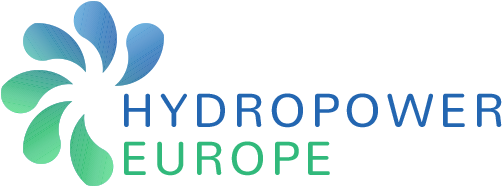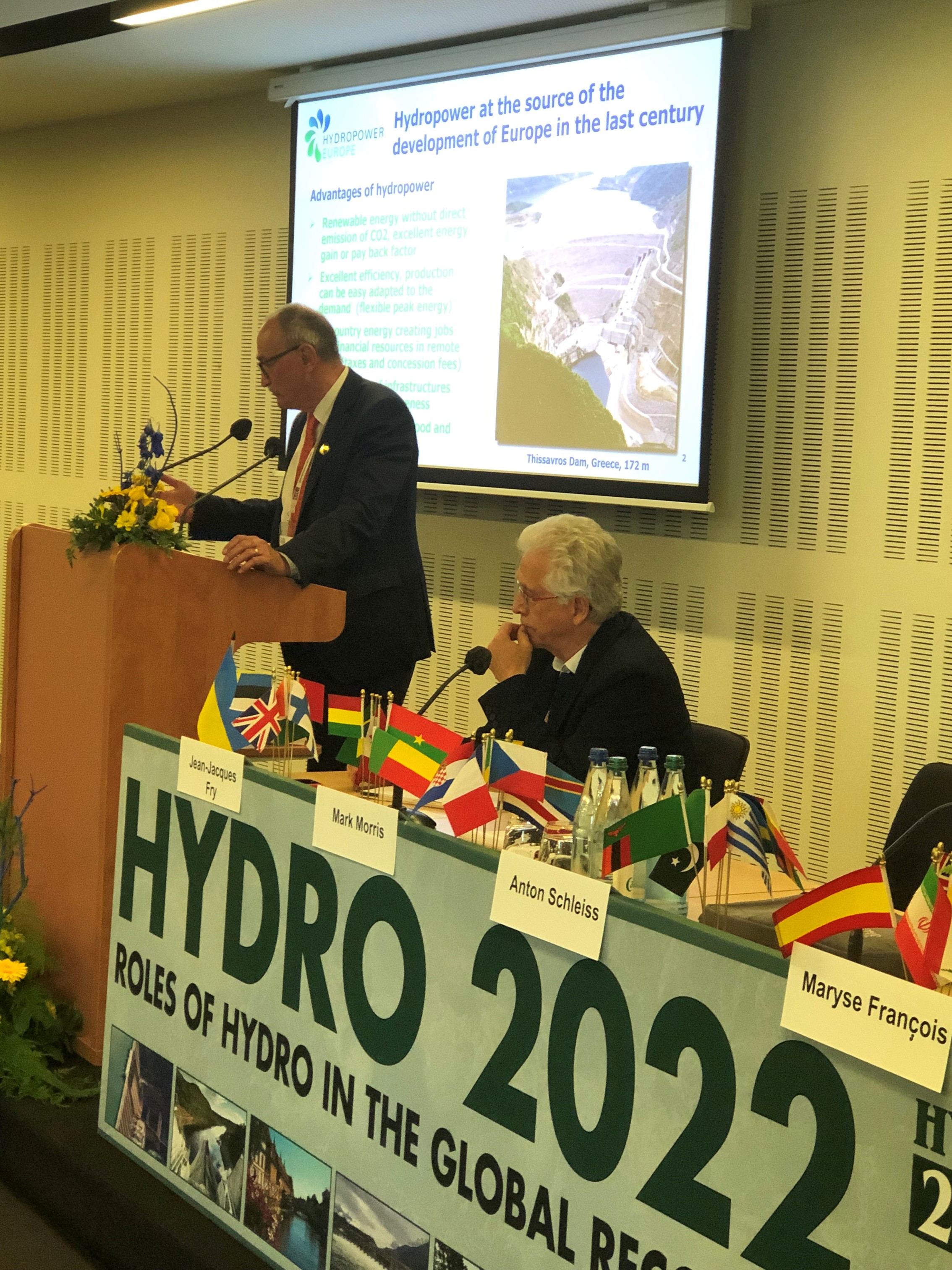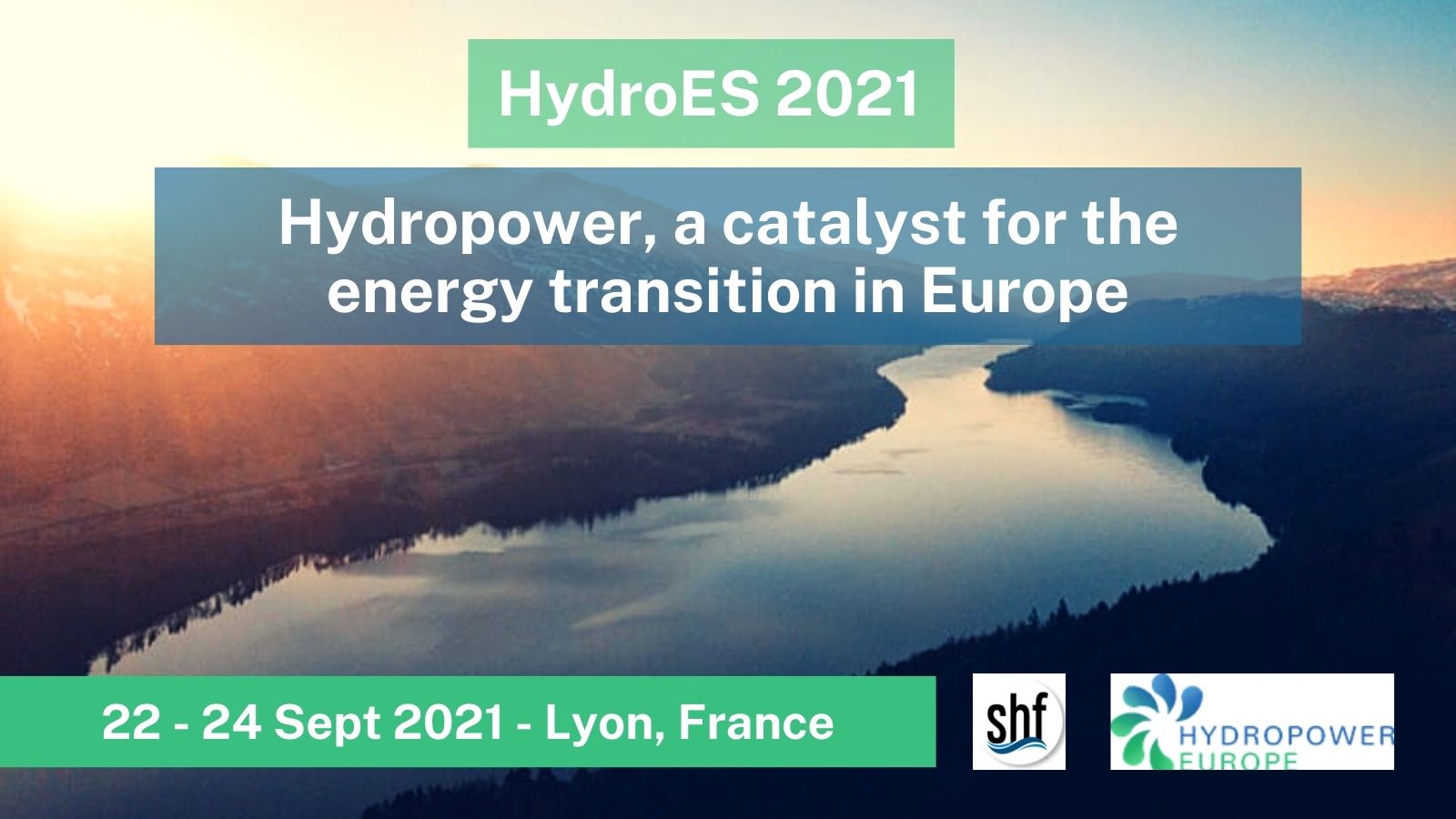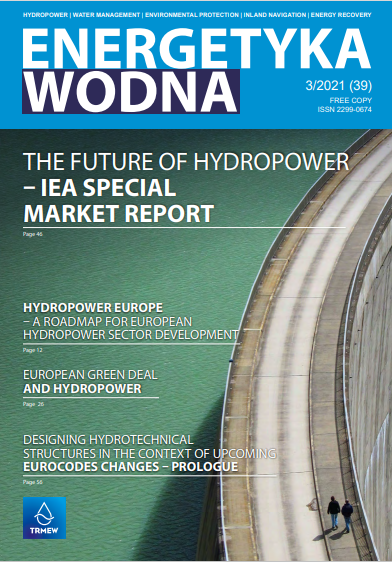Latest News
HYDRO 2022 Strasbourg: How to promote future hydro development in Europe with a sustainable impact?The HYDROPOWER EUROPE project (2018-2022), funded from the European Union's Horizon 2020 research and innovation program, has released its final deliverables: a Research and Innovation Agenda (RIA) and a Strategic Industry Roadmap (SIR) for the hydropower sector. The challenge is to have a permanent voice through a forum gathering all hydropower stakeholders in order that the EU can use the RIA and SIR recommendations in making decisions supporting hydropower contributions to the clean energy transition. The purpose of this special session was to discuss the question of how the future development of hydropower in Europe can be promoted in a sustainable way. « Is hydropower supported by enough funding for Research and Innovation and with regulation that can allow enough flexibility and storage in Europe by 2050? » asked J-J Fry, chairing this session with Mark Morris on behalf of HYDROPOWER EUROPE. Prof. Anton Schleiss, on behalf of the HYDROPOWER EUROPE coordination team, firstly identified that only 65% of the economically feasible hydropower potential is currently tapped in Europe but this could be increased by at least 10% through technical and environmental upgrading in the next 10 years. To help implement this increase in generation, the RIA, recently released by the HYDROPOWER EUROPE Forum (www.hydropower-europe.eu) which Prof Schleiss coordinated, listed recommended funding for the most pertinent research themes needed to address 5 crucial challenges:
To identify these priorities, the HYDROPOWER EUROPE project also used a global system analysis of hydropower in Europe which identified two critical levers to help effect change, namely: reservoir volume and public awareness of hydropower. A Strategic Industry Roadmap (SIR) was the second key deliverable of the HYDROPOWER EUROPE Forum which pointed out three key directions to help remove non-technical barriers to promote hydropower development:
Maryse François contributed with Jean-Jacques Fry to promote and rate the key Parameter Indicators of hydropower under the umbrella of the European Technology Innovation Platform (ETIP) Smart Networks for Energy Transition (SNET). She demonstrated that hydropower can provide the largest range of services (compared to other technologies) to the new electric system. Moreover, she emphasized that hydropower provides the best return on energy, with amongst the lowest carbon release, material consumption and lowest price. Moreover, hydropower is a territory and water asset (revenues, irrigation, water supply, flood control, navigation, recreational area etc.) and a service provider for the grid. On the other hand, it is a long term solution requiring innovation to shorten this duration. But the future huge need for storage, which in 2018 hydropower provided 94% of, requires more pumped storage (PSH), for which the CAPEX over 80 years is the most competitive (Pumped Storage Hydropower Capabilities and Costs Capabilities, Costs & Innovation Working Group IHA September 2021). From an environmental view point, PSH requires far less surface area than the equivalent land space that would be needed for batteries holding a similar capacity. With such qualities why is PSH not developed in Europe as in China: today more than 30 GW installed (25% of the world capacity), 62 GW announced by 2025 and 120 GW by 2030? Mark Morris, explained how the future development of hydropower in Europe could be promoted in a sustainable way. The HYDROPOWER EUROPE consortium has just been awarded funding under the recent Horizon Europe Call CL5-2021-D3-02-15 to build a European Technology Innovation Platform (ETIP) on HYDROPOWER which will be funded by the EC for three years. This will commence in Autumn 2022. The ETIP HYDROPOWER will allow:
He introduced key points on how research initiatives with high industrial interest within the European context could be coordinated and supported through:
To demonstrate clear value for money, he proposed 3 types of services facilitating research for industry and supporting easier more cost effective access to R&D funding. These comprised:
In conclusion, the ETIP HYDROPOWER is a unique opportunity to provide a unified voice to Europe, promote hydropower development and to facilitate technical and environmental research for the industry sector. The ETIP offers a stepping stone towards creating a sustainable HYDROPOWER EUROPE Forum through which these goals may be achieved.
Anton Schleiss and Jean-Jacques Fry during Hydropower Europe's Session at Hydro 2022 in Strasbourg |
Webinar 28 february 2022: What Research and Innovation are Needed to Tap More Hidden Hydro Opportunities in the Future?The IEA Technology Cooperation Programme (TCP) on Hydropower (also known as IEA Hydro) is a working group of the International Energy Agency's member countries and others that have a common interest in advancing hydropower worldwide. Under the work programme Annex XVI “Hidden Hydro” is addressed by four subtasks namely: 1) Updating Sustainable Hydropower Inventories; 2) Improving Performance from Existing Hydropower; 3) Adding Power to “Non-power Dams” and Water Management Facilities and 4) Hydropower Technology Research and Innovation in the context of “Hidden” Hydropower opportunities. In the framework of subtask 4 and in collaboration with the HYDROPOWER EUROPE Forum an online kick-off workshop “What research and innovation are needed to tap more hidden hydro opportunities in future?” was organized. The more than 50 participants connected online discussed the potential innovative research and development initiatives in the field of “Hidden and Untapped Hydropower Opportunities in Existing Infrastructures” with the purpose to contribute to the development of a future oriented research and innovation agenda. The latter should formulate needs for further technology development to maximize the future use of the potential of sustainable hidden hydropower. After welcome and a brief introduction of TCP Hydropower by Alex Beckitt, Chair of IEA Hydropower TCP, Hydro Tasmania, AU and Klaus Jorde, Executive Committee Secretary, IEA Hydropower TCP, a short presentation of Annex XVI was given by Cécile Münch-Alligné, professor at HEVS (CH) followed by short overviews of Subtask 1 ”Updating Sustainable Hydropower Inventories” by Vincent Denis, Mhylab (CH), Subtask 2 “Improving Performance from Existing Hydropower” by Yoichi Miyanaga, CRIEPI (JP) and Subtask 3 “Adding Power to Non-power Dams and Water Management Facilities” by Carly Hansen, ORNL (USA). Then Thomas Schleker from European Commission introduced the goal of the workshop focusing on “Hydropower Technology Research and Innovation for Hidden Hydropower opportunities”. Anton Schleiss, Coordinator of Hydropower Europe, ICOLD-EPFL, gave an overview of the “Research and Innovation Agenda for Hydropower Development in Europe with focus on Hidden Hydro” as developed by the Hydropower Europe Forum. Nathalie Voisin, PNNL (USA) highlighted the “US Perspectives on Needed Technology Research and Innovation” followed by a presentation on “R&Is found in good practices by Task 2” in Japan. Finally, Emanuele Quaranta, European Commission Joint Research Centre, gave a talk on “Hidden hydropower potential in EU: micro hydro technologies and hydro fleet modernization”. Jean-Jacques Fry and Mark Morris, from Hydropower Europe then presented a questionnaire with general questions on hidden hydro as well as questions regarding a future questionnaire. The participants had the opportunity to give a direct feedback on the questions by a poll and you can download the results here. The online workshop was closed with roundtable involving all speakers and chairs and discussing the question how a future oriented research and Innovation agenda can be developed for Hidden Hydro.
|
HYDROPOWER EUROPE Final Event: “The Important Role of Hydropower in Energy Transition”The HYDROPOWER EUROPE conference that took place online on the 23rd February 2022 was the final event of the HYDROPOWER EUROPE Project – a project that was created under the European Union call: “H2020-LC-SC3-2018-2019-2020 (BUILDING A LOW-CARBON, CLIMATE RESILIENT FUTURE: SECURE, CLEAN AND EFFICIENT ENERGY)” and which has been running since November 2018. The objective of this event was to present the results of the HYDROPOWER EUROPE Project, namely the conclusions drawn from the consultation with sector stakeholders that led to the creation of the Research and Innovation Agenda (RIA) and the Strategic Industry Roadmap (SIR) (See key publications at https://hydropower-europe.eu and see our dissemination video at: https://youtu.be/Kwccf0ZESxo ) Anton Schleiss, Honorary President of the International Commission on Large Dams (ICOLD) and Professor Emeritus of EPFL, opened the conference by providing an introduction to the status of hydropower in Europe and suggesting that this source of energy could provide increased contributions in the coming years, recognising that only two third of the economically feasible potential had been tapped so far. In fact, in the field of energy production, hydroelectricity remains an excellent and safe supply tool to support the energy transition and the fight against global warming. He revealed that in more than half of the countries in Europe, hydropower still provides a significant share (>25%) of electricity generation, which is important for the success of the energy transition in ensuring safe electricity supply. Worldwide, hydropower alone produces three quarters of all renewable electricity. Ms Hélène Chraye, Head of Unit for the Clean Energy Transition and Deputy Director of Clean Planet at DG R&I, followed the opening with an overview of the “Goals of European Hydropower R&I Funding” and the overall EU strategy to meet the targets set by the European Green Deal. The webinar focused next on the main outcomes of the HYDROPOWER EUROPE project. Anton Schleiss and Jean-Jacques Fry had the task of presenting highlights from our main documents: the RIA and the SIR, which were created after three years of extensive consultation involving more than 600 stakeholders. The final reports (~140 pages each) present 18 research themes with 80 topics (RIA) and 11 strategic directions which include 40 detailed actions (SIR). Two illustrated summary brochures of ~20 pages each have been produced by the forum which give an overview of the high to very high priority outcomes. From the European Commission, Thomas Schleker, Policy Officer at DG R&I, and Sébastien Mortier, Research Projects Portfolio Manager at CINEA, shared with the audience some impressions about the work of HYDROPOWER EUROPE. They thanked the team for the good coordination and the excellent outputs. Finally, Mark Morris, a team member from SAMUI France, closed the round of presentations. He reminded the audience about the importance of the role of hydropower for the energy transition and thus, the need to have a permanent and common voice in Europe for the hydropower sector to support both research and innovation as well as to increase public awareness by promoting strategic actions. As seen during the roundtable discussions which involved some 130 participants online, hydropower in Europe faces a large number of challenges. The outcomes of HYDROPOWER EUROPE details the agenda and roadmap to help meet these environmental, societal, technological and commercial challenges. As Jean-Jacques Fry advised during the final statements: “Communication on hydro as a catalyst for the energy transition is key for the future. It is clear that hydropower has been providing a great service for more than 150 years, but now it is time to speak to civil society and policymakers about its future development potential”. Anton Schleiss concluded the event by highlighting again that the outcomes of the HYDROPOWER EUROPE forum confirm hydropower as a key partner and catalyst for the clean energy transition not only in Europe, but also worldwide. He thanked all consortium members of the HYDROPOWER EUROPE project, the Consultation Expert Panel as well as the more than 600 stakeholders participating through the HYDROPOWER EUROPE Forum for the efficient and fruitful collaboration during the 40 month project period. His gratitude for the funding also went to the European Commission represented by the participating officers who gave valuable input during the project. The Forum was able to gather a large family of experts and stakeholders, and with its continued support, public awareness on the important role of hydropower can be further increased in the future. Presentations from the speakers:
|
Hydropower Europe Dissemination VIdeoThe Hydropower Europe Forum successfully released a Research and Innovation Agenda as well as a Strategic Industry Roadmap on «Hydropower as a key partner and catalyst for the clean energy transition». See the video that summarises the three years of work within the project. |
Review of performance of Pumped Storage Hydropower and needed R&I investment
The Working Group 2 of the ETIP SNET, managed by Franco Di Persio, has completed :
They provide the technology pathways to meet the needs of the different Use Cases of Storage and they will be used to prioritize European R&I investments on Energy Storage applications. They demonstrate the large range of use cases and the high level of performance of Pumped Storage Hydropower. They provide you with information to make informed decisions on national and EU investment on PSH. Based on these tables, a position paper is under preparation (see a draft version here). Its objective is to make informed decisions on EU R&I efforts on energy storage technologies. If you want to comment and complete these tables and/or contribute to the Position Paper, your are invited to do it before Tuesday the 15th of February 2022 and send the amended documents to info@hydropower-europe.eu
|
EVENT - HYDROPOWER EUROPE Forum: The Important Role of Hydropower in the Energy Transition
ContextThis HYDROPOWER EUROPE Forum event will present results and recommendations arising from the HYDROPOWER EUROPE project, which was created under the European Union call: “H2020-LC-SC3-2018-2019-2020 (BUILDING A LOW-CARBON, CLIMATE RESILIENT FUTURE: SECURE, CLEAN AND EFFICIENT ENERGY)” and which has been running since 2018. Hydropower development in Europe faces a large number of challenges. To meet these environmental, societal, technological and commercial challenges, new approaches are needed. Europe's desire to decarbonise energy is a unique opportunity for hydropower to redeploy itself, provided it develops greater flexibility and social and environmental acceptability. In the field of energy production, hydroelectricity remains an excellent catalyst to support the energy transition and the fight against global warming. Besides flexible electricity supply, hydropower reservoirs provide other services such as flood and drought protection and food and water supply, and thus contributes to the Water-Energy-Food NEXUS as well as achievement of the United Nations Sustainable Development Goals. Today, hydropower alone produces three quarters of renewable electricity in the world and still has strong development potential.
ObjectivesThe objective of this online event is to present the results of the HYDROPOWER EUROPE Project, namely the conclusions drawn from the various consultation events with different sector stakeholders which led to the creation of the Research and Innovation Agenda (RIA) and the Strategic Industry Roadmap (SIR). The event focus will be on the following items:
AgendaThe event will take place on the 23rd February 2022 from 9h30 to 11h45. After an opening address from an invited speaker from the European Commission underlying the importance of hydropower as a catalyst for the energy transition, the main outcomes and recommendations from the RIA and SIR will be presented. The responsible EU project officers will then briefly comment on the achievements of the HYDROPOWER EUROPE Forum. Then the question “What are the strategic actions to be deployed across all stakeholders?” will be addressed in a roundtable discussion involving all speakers and the participating audience. Finally, the intentions regarding the future of the HYDROPOWER EUROPE Forum as a common and permanent voice in Europe will be presented. Closing remarks will conclude the event. Registration and Summary DocumentsPlease register for the event “The important Role of Hydropower in the Energy Transition” online. You will be contacted before the event with the connection details as well as the final agenda. Brochures summarising the main outcomes of the Research and Innovation Agenda (RIA) and the Strategic Industry Roadmap (SIR) are available HERE
|
The Research and Innovation Agenda (RIA) and the Strategic Industry Roadmap (SIR)Hydropower in Europe faces a large number of challenges and that to meet these environmental, societal, technological and commercial ones, new approaches are needed. Europe's desire to decarbonise energy is a unique opportunity for hydropower to redeploy itself, provided it develops more flexibility and social and environmental acceptability. For this reason, the HYDROPOWR-EUROPE forum was created to gather the needs for innovation in the Research and Innovation Agenda (RIA), to address the challenges with the Strategic Industry Roadmap (SIR) and to disseminate these two deliverables that can be downloaded from our DELIVERABLES section of the website.
|
Watch the sessions of “Hydropower, a catalyst for the energy transition in Europe” event in Lyon
HydroES 2021 took place last 22-24 September 2021 around the theme "Hydropower, a catalyst for the energy transition in Europe", the idea that we have been transmitting from the forum since its creation. The first day, Hydropower Europe had the honour of organising a whole day session. Some of the conclussions drawn were:
CLICK HERE TO ACCESS THE RECORDINGS.
|
Hydropower Europe featured at "Energetyka Wodna" magazineOur colleague Jean-Jacques FRY was featured in "Energetyka Wodna" magazine with his article: " HYDROPOWER EUROPE – A ROADMAP FOR EUROPEAN HYDROPOWER SECTOR DEVELOPMENT" where he explains the role of hydropower in the European energy transition, what we do at HYDROPOWER EUROPE forum and promotes the Research and Innovation Agenda (RIA) and the Strategic Industry Roadmap (SIR). These last can be found here: https://lnkd.in/ddyy74Q Full article can be found here: https://lnkd.in/dfuDV5_C
|
Participation at Hydroforum 2021 in GdanskHydroforum 2021, was the 10th edition of the Polish Hydropower Association organized on 13-15th October in Gdansk by Professor Janusz Steller. 130 participants were registered to attend 31 Lectures in 8 sessions with simultaneous translation. Very interesting lectures introduced multiple innovations: hybridization with floating PV (Norwep), new turbines (Voith, ultra low head Kaplan, hydrokinetic), maritime structures with three RES (Wuprohyd), “fishlift” concept (Pelikan), prediction and remediation of cavitation (Steller, Belse), hidden hydro in municipal water networks, remote assessment of fish spawning sites (Vytaulas Magnus Univ.), double active fish pass (Ioze). New multipurpose projects of dams and Vistula cascade project were also presented. For more information on papers and presentations, contact Prof. Steller. Two H2020 projects were presented. Jean-Jacques Fry introduced the HYDROPOWER EUROPE forum and its deliverables, the RIA and SIR. Ingo Ball introduced the HYPOSO project. Professor Steller organized an interesting debate on the reason of failing to launch large hydropower projects (like the Lower Vistula Cascade and subsequent PSH). There was a consensus on the fact that our profession has failed to convince politicians for different reasons. Dr. J-J Fry explained there is an inconsistency between the decreasing cost of wind and solar energies (VRE) and the increasing cost of electricity. The cost of electricity is the sum of generation cost + taxes + transport cost + grid balancing (flexibility and storage) cost. Larger share of VRE increases grid balancing cost. Flexibility and storage are negative externalities of VRE. Externalities are valued by regulation and not by the market alone. The solution is to demonstrate to policy makers that hydropower is the solution for flexibility and storage minimizing electricity cost, for societal services (navigation, protection against floods, irrigation, etc.) with sustainable solutions protecting biodiversity from climate changes. Ingo BALL, the coordinator of HYPOSO, introduced this project and its platform. HYPOSO means Hydropower solutions for developing and emerging countries. It is important to note that the HYPOSO Platform is an online forum that promotes the European SHP industry in key export markets. The HYPOSO Platform facilitates individual promotion of European suppliers/service organisations. Joining the exclusive HYPOSO Platform with just some clicks is an opportunity to meet future business partners to develop hydro projects in Africa (Cameroon, Uganda) and Latin America (Bolivia, Colombia, Ecuador). Find out more at https://www.hyposo.eu/en/hyposo-platform/ ” and ingo.ball@wip-munich.de More information on this event: Janusz Steller, DSc https://www.tew.pl/index.php/en/
Participants of Hydroforum 2021 Gdansk |
Latest News
EVENT: Developments and biodiversity of watercourses. 8-10 November 2022
"Aménagements et biodiversité des cours d’eau" (EN: "Developments and Biodiversity of watercourses") is a conference organised by the Societé Hydrotechnique de France (SHF), next 8-10 November 2022 in Strasbourg, France. About the confere...
CONFERENCE: "QUO VADIS? Innovation potential of Hydropower" 27 - 28 October 2022
"QUO VADIS? Innovationspotential der Wasserkraft" (Innovation potential of Hydropower) is a conference organised by IBI- Kompetenz, the multidisciplinary platform for e...
JOINT LETTER: Renewables displace fossil fuels - the Innovation Fund must recorgnise this
Joint letter signed by: Bioenergy Europe, the European Heat Pump Assocition (EHPA), the European Renewable Energies Federation (EREF), the European Solar manufacturing Council (ESMC), the European Solar Thermal Electricity Association (ESTELA), Solar Heat Europe (ESTIF), Solar Power Europe, the A...
ETIP HYDROPOWER EUROPE: The permanent and common voice of Hydropower in Europe
ETIP Hydropower Europe (ETIP Hydropower) is a new project in the EU programme ...
Prof. Anton Schleiss at the 7th IAHR Europe Congress (Greece)
Prof. Anton Schleiss, from the International Commission on Large Dams (ICOLD - CIGB), was invited as a keynote speaker for the opening session og the ...
Hydro Power Industry Guide 2021/22 by VGBE
After the success from "Hydro Power Industry guide 2020/21", our colleagues from VGBe wanted to offer us the new guide from this year: “Hydropower Industry Guide 2021/22”. vgbe´s ...
POSITION PAPER: Hydropower as a catalyst and facilitator for the clean, safe and independent energy transition in Europe.
Key Messages: Given Europe’s ambition to raise the renewables target to 45%1 hydropower is critical to ensure Europe’s energy system has the necessary renewable electricity and flexibility to protect grid stability from intermittent renewable energy, to sustain the gr...
NEW PUBLICATION, Hydroscience Journal: "Hydropower, a catalyst for energy transition in Europe"
On the context of HydroES 2021 (22 September 2021), Hydropower Europe had the chance to present its vision and results achieved during three years of consultations. Some of the conclusions are: Hydropower still has a great potential for development Hydropower sector needs...
HYDRO 2022 Strasbourg: How to promote future hydro development in Europe with a sustainable impact?
The HYDROPOWER EUROPE project (2018-2022), funded from the European Union's Horizon 2020 research and innovation program, has released its final deliverables: a Research and Innovation Agenda (RIA) and a Strategic Industry Roadmap (SIR) for the hydropower sector. The challenge is...
Webinar 28 february 2022: What Research and Innovation are Needed to Tap More Hidden Hydro Opportunities in the Future?
The IEA Technology Cooperation Programme (TCP) on Hydropower (also known as IEA Hydro) is a working group of the International Energy Agency's member countries and others that have a common interest in advancing hydropower worldwide. Under the work programme Annex XVI...










